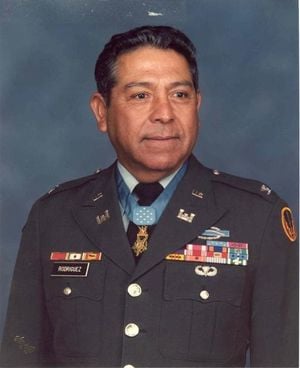Didier Pineau-Valencienne, the former head of Schneider Electric and iconic figure of French industry, passed away on December 19, 2024, at the age of 93. His contributions to the industrial sector and leadership style have left a significant mark on France's economic scene.
Brought up in Vendée, Pineau-Valencienne was born on March 21, 1931, to a family of physicians. This background may have laid the foundation for his future focus on healing the fortunes of struggling companies. After completing his studies at the prestigious HEC business school and the Dartmouth College in the United States, Pineau-Valencienne began his career at the literary publishing house Gallimard, where he shared professional space with renowned authors such as Albert Camus. His deep love for literature, particularly poetry, was well-known and shaped his personal philosophy. He frequently asserted, "Books were my companions for life; whenever something went awry, I turned to literature for solace."
Despite his literary inclinations, the corporate world beckoned, and he joined the Franco-Belgian group Empain-Schneider in 1958. He deftly handled struggling subsidiaries, showcasing his skills as a corporate turnaround specialist. This earned him recognition and led to his involvement with Rhône-Poulenc before taking the reins at Schneider Electric.
Beginning his second stint with Schneider Electric as president in 1981 during economically turbulent times, he initiated drastic changes. Under his leadership, the company shifted its focus solely to electrical engineering, divesting from unprofitable sectors, including shipbuilding and steel. Pineau-Valencienne’s aggressive restructuring efforts and hands-on management garnered him various nicknames, both affectionate and scornful; one of the most notorious being "DPV la casse"—a reference to his unrelenting pursuit of efficiency.
He faced criticism when the once-thriving Creusot-Loire succumbed to liquidation—an event regarded as the largest industrial bankruptcy in France’s history, affecting nearly 30,000 employees. This incident gave rise to harsh labels such as "the grave-keeper" and "savage raider" as critics depicted him as ruthless.
Pineau-Valencienne didn't let adversity deter him; instead, he made bold moves, such as acquiring Télémécanique and launching a hostile takeover of American firm Square D, which expanded Schneider's global footprint. His audacious strategies dramatically increased Schneider Electric's revenue and market value, multiplying its turnover by 17 during his tenure.
His reputation as both a benefactor and controversial figure was cemented when he faced legal challenges related to the management of Belgian subsidiaries. He was accused of fraud and was incarcerated for 12 days after being interrogated by Belgian authorities. Reflecting on those tumultuous times, he recalled, "It was like taking medicine when you had no choice; I endured it as part of my destiny." He was later found guilty, but due to the age of the incidents, he was not sentenced.
Didier Pineau-Valencienne's career encapsulates the essence of the capitalist spirit and its accompanying risks. Despite legal troubles and heated public scrutiny, his vision shaped Schneider Electric’s transformation from conglomerate to powerhouse, full of innovation and strategic foresight. Currently serving as the head of Schneider Electric, Jean-Pascal Tricoire, remarked, "We owe DPV for the cleansing of the conglomerate left from the family adventure; it took significant courage during years not favorable to restructuring.”
Unsurprisingly, Pineau-Valencienne’s narrative is intricately woven with the industrial fabric of France and its transition during challenging economic times. His legacy endures beyond corporate walls, evoking admiration and criticism alike. "He has contributed to making France shine globally and helped maintain its industrial might," commended Alain Lebœuf, president of the Vendée departmental council. Bruno Retailleau, the former Minister of the Interior, lauded his efforts by stating, "His visionary leadership allowed Schneider Electric to become a leader globally."
Didier Pineau-Valencienne’s funeral service is set for December 24 at the Notre-Dame-de-Boulogne church, followed by his burial on December 27 at Saint-Hilaire-du-Bois cemetery, Vendée, where he was born. His impact on the industry and literature will be warmly remembered by colleagues and friends alike.



